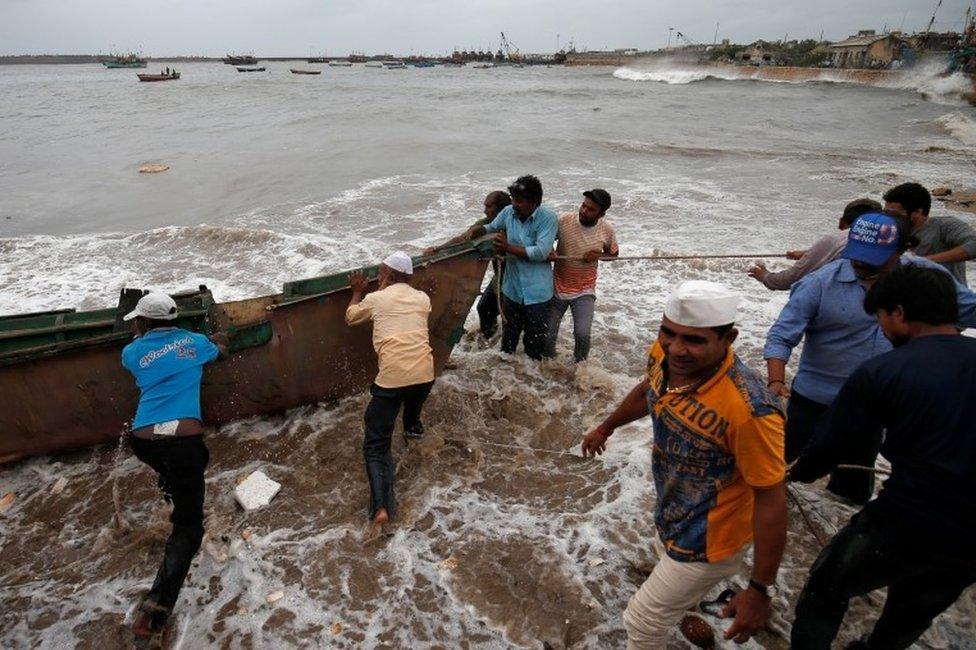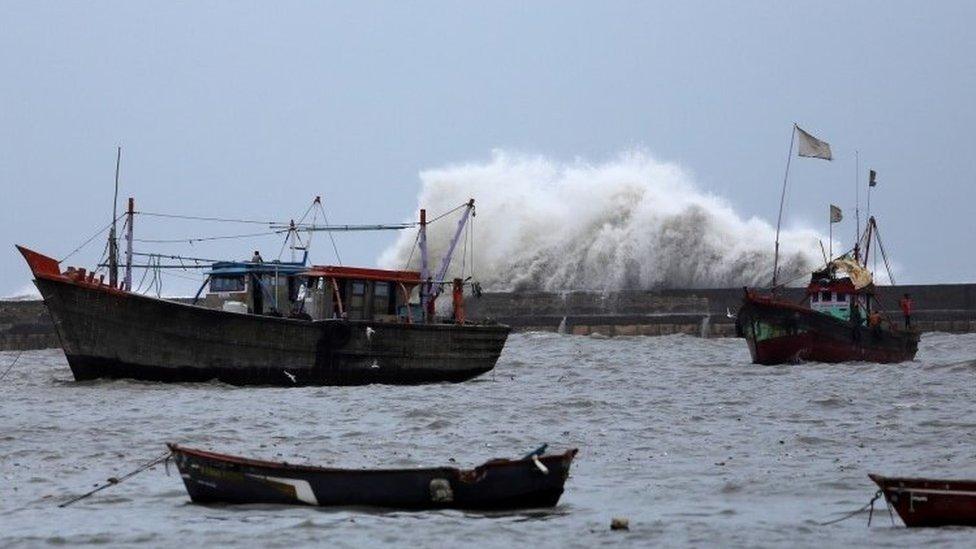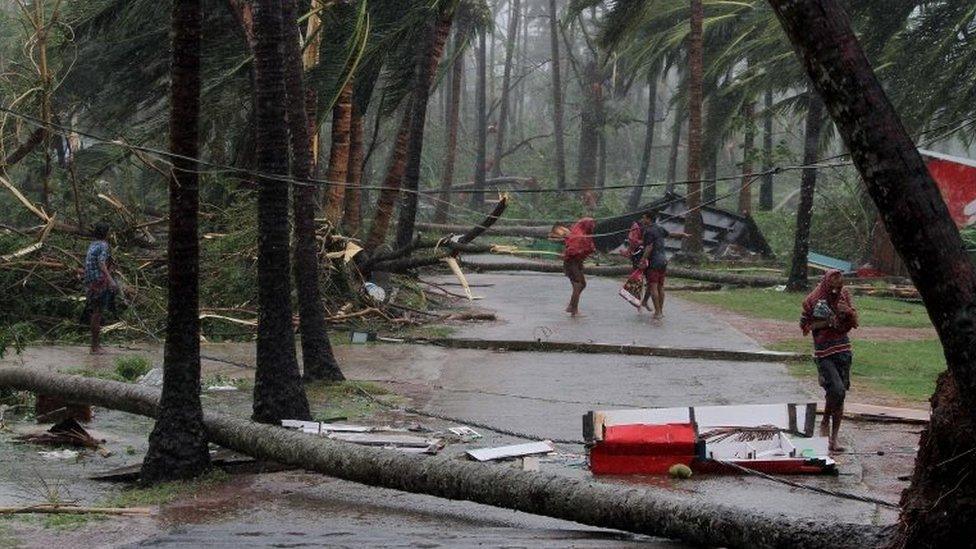Cyclone Vayu: India cyclone changes course overnight
- Published

Fishermen have moved their boats away from the sea
A powerful cyclone that was expected to make landfall on India's western coast on Thursday has changed its course, moving further into the Arabian sea.
Hundreds of thousands of people had already been evacuated as the region braced for Cyclone Vayu, which was classified as "very severe".
But coastal areas will continue to experience "strong winds and heavy rains", officials said.
The coastguard, the navy and disaster response teams are on standby.
Forecasters had warned of heavy rains and winds of up to 170 km/h (105 mph).
Cyclone Vayu remains a threat
Parts of Gujarat state and Union Territory of Daman and Diu, which were expected to be hit by the storm, are still on high alert.
Schools and colleges will remain closed. And airports in both regions are closed and trains too have been cancelled or diverted. The port at the Gulf of Cambay in Gujarat has also suspended all operations.
The India Meteorological Department has advised fishermen to not go out to sea until at least 15 June.

Coastal parts of Gujarat such as Veraval are still on high alert
This was expected to be worst cyclone to hit Gujarat since 1998, when a deadly storm killed some 10,000 people.
A powerful cyclone ravaged the eastern state of Orissa in May.
At winds of up to 200 km/h (125mph), it was more potent than Cyclone Vayu is predicted to be.
Nearly 80 people were killed but officials said the preparations and emergency response saved many lives.
- Published4 May 2019
